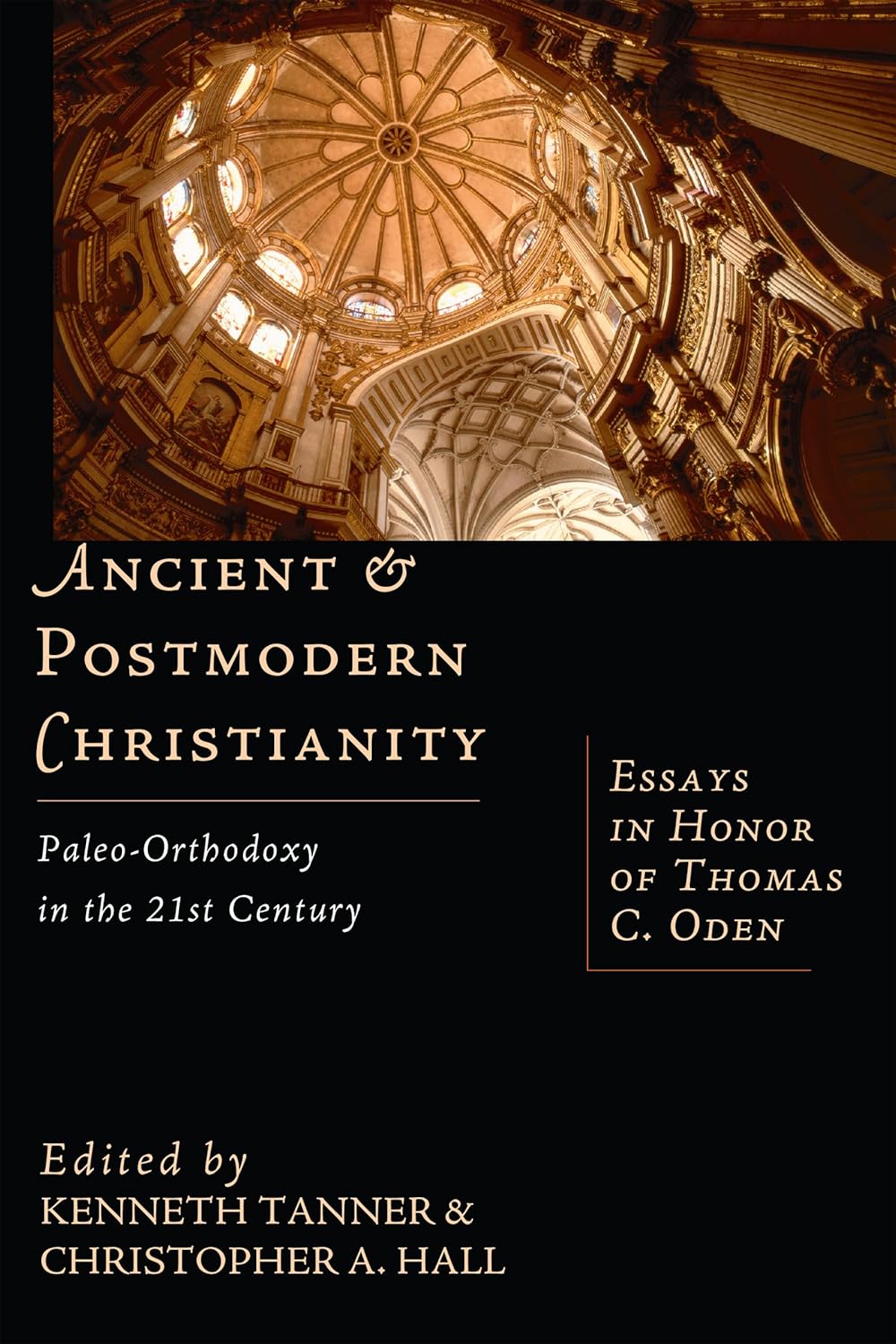
In 2002, InterVarsity Press published a festshrift in honor of the life and work of theologian Thomas C. Oden (1931–2016). The Introduction to the anthology was written by Christopher A. Hall, who had been one of Oden’s students. (You can listen to a chapter from Hall’s book, Reading Scripture with the Church Fathers, on our Anthology, Sources of Ancient Wisdom.) Here are some paragraphs from that chapter.
“Imagine a kid raised in a home that was deeply rooted in the pietistic tradition and the political ideals of the Democratic Party. Oden’s parents were devoted to the Bible and also deeply committed to liberal political philosophy and the union movement. Oden took this upbringing seriously, especially the idea that genuine faith would demonstrate itself in concrete action. During high school he organized students in the United World Federalist movement, and in college was attracted to quasi-socialist philosophy as Tom worked for the Students for Democratic Action at the University of Oklahoma. When Oden decided to attend the theological school at Perkins in Dallas, it wasn’t because he was strongly committed to the biblical message, but rather to the hope that the church could be an effective instrument of social change.
“A continuing political radicalism tinged Oden’s seminary experience, but was somewhat moderated by his exposure to theological voices that demanded a greater realism. As Oden read Reinhold Niebuhr and Martin Luther, for instance, he was shocked out of his pacifism in 1955. Generally speaking, how-ever, Oden remained committed for many years to the premises of strong government regulation and a general slate of liberal-socialist goals.
“During Oden’s time at Perkins he was exposed to a heavy helping of existentialist thought while studying with Joseph Matthews. Sartre, Camus, Marcel and Rudolf Bultmann became close companions. It is especially Bultmann who best symbolizes the direction of Oden’s thought at Perkins. Bultmann’s existentialist perspective resurrected the Bible for Oden in the early 1950s. It is difficult to overestimate the influence of Bultmann on Oden during these formative years. ‘As I look back at the trajectory of my adult life, one name weaves in and out almost from the beginning: Rudolf Bultmann.’
“A sense of theological vocation was crystallizing in Oden as he left Perkins for graduate study at Yale, a vocation that continued to be shaped by existentialist categories throughout the late 1950s and early 1960s. Indeed, as Oden recalls, ‘As late as the mid-sixties I continued writing and speaking in defense of what I would call a moderate Bultmannian position in theology.’ Added into the theological mix was an interest in post-Freudian psychology.
“Oden remembers this period as one of novel experimentation combined with a mistrust and disdain for the past. His interaction with Scripture and other theological texts was less a dialogue than a ‘filtering process’; he allowed more traditional sources to speak to ‘only insofar as they could meet’ his ‘conditions,’ ‘worldview’ and ‘assumptions as a modern man.’ Oden experimented to a lesser or greater degree with communitarianism, politics, yoga, breathing techniques, tarot cards, paranormal phenomena and T groups — much that today is being called New Age. His worldview continued to turn toward the left, a movement that changed direction only as the political and social anarchy of the late sixties undercut Oden’s expectations and hopes.
“The hedonism so deeply imbedded in Oden’s thought ultimately led to a deep disillusionment with the direction his life had taken by the late sixties. Tom relates that the 1968 Democratic National Convention was a crucial turning point. ‘By that time I had developed a preliminary revulsion against antinomianism and anarchism, which would soon grow toward moderate political neo-conservatism. When people started throwing excrement at the police in Chicago, I got scared, and I’ve never been the same since.’ He was witnessing and experiencing first hand tremendous pain, both culturally and personally. Ideas and lifestyles that were meant to lead to life had instead led to destruction and death.
“For instance, Oden increasingly realized his advocacy of abortion rights demonstrated a fundamental misdirection in his own value structure. Throughout the sixties Oden was sincerely committed to liberalized abortion legislation in Oklahoma. He was shocked when he became aware that his support of individual choice as a fundamental value had led to the sacrifice of thousands of individual lives. ‘In the midst of all the rhetoric about freedom came the embarrassing awareness that I was condoning a moral matrix in which innocent life was being taken. That was a shock. It still is.’ Oden’s revulsion over his abortion stance in turn produced a loss of confidence in a whole series of liberal programs. Hedonism, autonomous individualism, the idolatry of the new, moral relativism and Tom’s narrow empiricist worldview had run into a dead end. Where was he to turn? Oden’s eyes had always been focused on the future for solutions. Soon he would find himself looking in the opposite direction.”
— from Christopher A. Hall, “Introduction,” in Ancient and Postmodern Christianity: Paleo-Orthodoxy in the 21st Century: Essays in Honor of Thomas C. Oden, Kenneth Tanner & Christopher A. Hall, editors (InterVarsity Press, 2002)